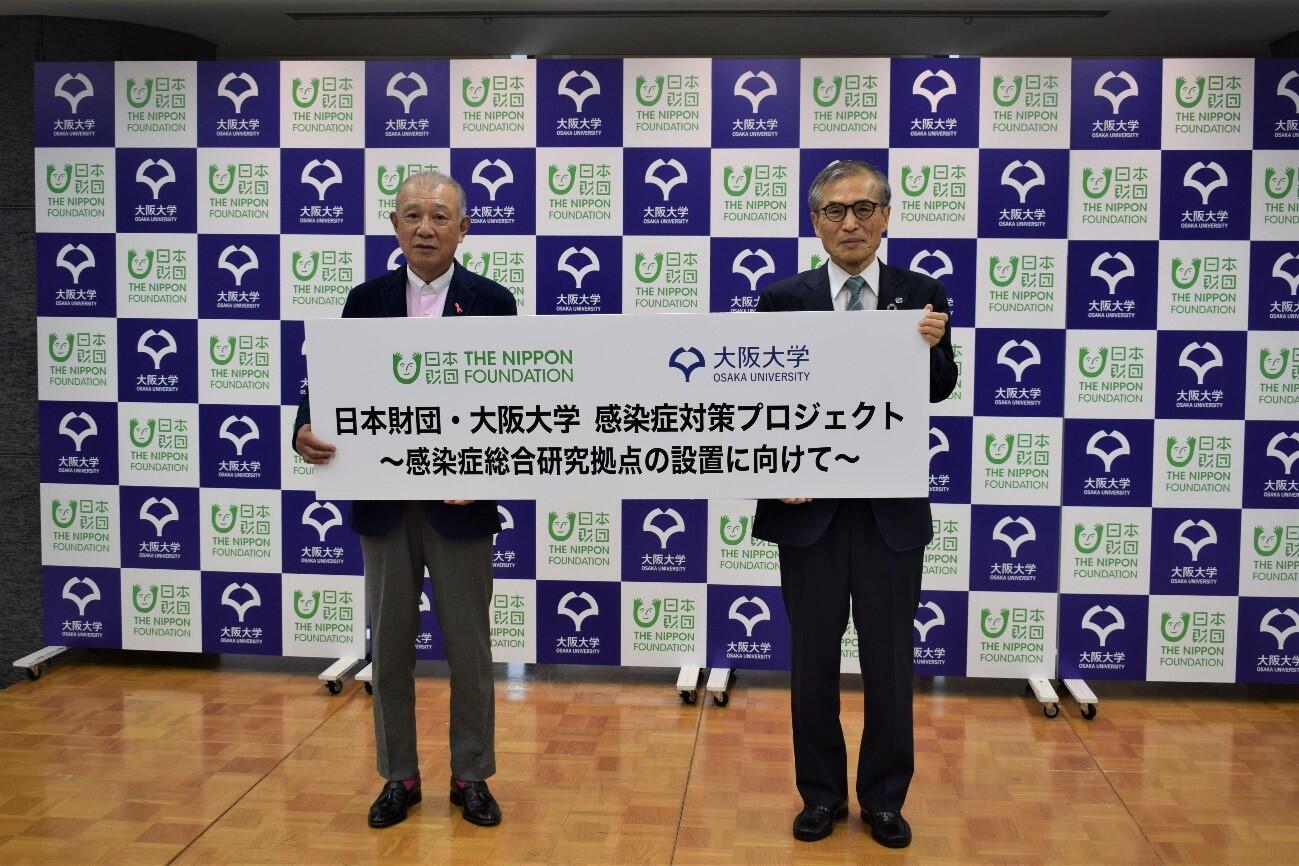The Nippon Foundation announced that it would invest 23 billion yen in Osaka University over 10 years with the aim of facilitating basic research on infectious diseases, developing medical human resources, and improving social literacy. A new research building and facilities will be constructed using 11.6 billion yen at the Center for Infectious Disease Education and Research (CIDER) established by Osaka University in April. A total of 9 billion yen will be allocated for 10 years of basic research, and 1.2 billion yen will be allocated for human resource development and improvement of literacy. Japanese universities have previously been funded with 10 billion yen through industry-academia collaboration, but this was the first time that such a large amount of private funding was dedicated to solely to research.
Osaka University started as "Tekijuku," or place of learning, founded by Koan Ogata, which subsequently opened the Small Pox Bureau, and established the Institute for Microbial Diseases in 1934, which conducts basic research on infectious diseases and microbes, and the Osaka Society for Microbial Diseases (currently known as the BIKEN Foundation), which develops and manufactures vaccines, and which has been engaged in a wide range of efforts concerning infectious diseases from the basics to practical use.
In recent years, an Immunology Frontier Research Center has been established as a global hub and plays a central role in the study of infectious diseases in Japan. Many social challenges, such as maintaining economic and social activities, preventing infectious diseases, and preventing medical collapse at the time of the pandemic, were revealed during the issues caused by COVID-19. In order to deal with these issues, a study base that serves as an international hub was formed at Osaka University, and CIDER was established in April of this year to address research from the viewpoints of sociopsychology and behavioral economics.
President Shojiro Nishio explains the process leading up to the plan. "Since around January last year, we have been discussing how we can combine the power of universities to respond to requests from society, and in this context, we were envisioning a comprehensive base. Under these circumstances, we received communication from the Nippon Foundation about grants for research last summer. When we conveyed the idea that we need to conduct basic research from a long-term perspective, we began to talk in concrete terms as this matched the ideas of the Foundation."
Yohei Sasakawa, Chairman of the Nippon Foundation, said, "Under the philosophy of action, 'If we are prepared, there will be no worries.' Infectious diseases are expected to emerge anew in the future. It is extremely important to build a strong foundation for basic science and basic medicine. This is the very foundation that leads to the promotion of applied science and applied medicine. Osaka University has been conducting wonderful activities in the field of infectious diseases research, starting with Koan Ogata's Tekijuku. President Nishio also believes in the philosophy of becoming an open research base not only for Osaka University, but also for universities and researchers across Japan and abroad, and we have decided to work on this project together with Osaka University."
CiDER will work on three action plans: the sharing of information and the improvement of information sharing and literacy on infectious diseases; the establishment of a foundation for research on infectious diseases, such as prevention, diagnostics, and treatment; and education and training of medical personnel and training of leaders. In addition, as a forum for open innovation where experts from different fields can gather in one place and collaborate under one roof, the world's best research infrastructure will be established in a new nine-story research building, and an international base on infectious diseases will be built.
For the diagnosis, prevention, and rapid development and spread of therapy for emerging and re-emerging infectious diseases, it is necessary to comprehensively advance pathogenic microbiology, immunology, clinical medicine, mathematical science, metrology, and informatics, to clarify the basic principles of the human biological defense system and immune response mechanisms against pathogenic microorganisms, and to develop basic research on pathogenic microorganisms and their control methods. Research into behavioral economics and social science is also important. Among the funds from the Nippon Foundation, 9 billion yen will be allocated for basic research, which is an average of 900 million yen per year. As the base will operate as an international hub, it is expected to become a place where researchers from Japan and abroad gather.
President Nishio enthusiastically said, "We will make full use of our accumulated knowledge, through continuous studies at Osaka University, and experience, in collaboration with various organizations in Japan and abroad, to promote this project wholeheartedly and contribute to society."

Credit: Nippon Foundation
This article has been translated by JST with permission from The Science News Ltd.(https://sci-news.co.jp/). Unauthorized reproduction of the article and photographs is prohibited.




